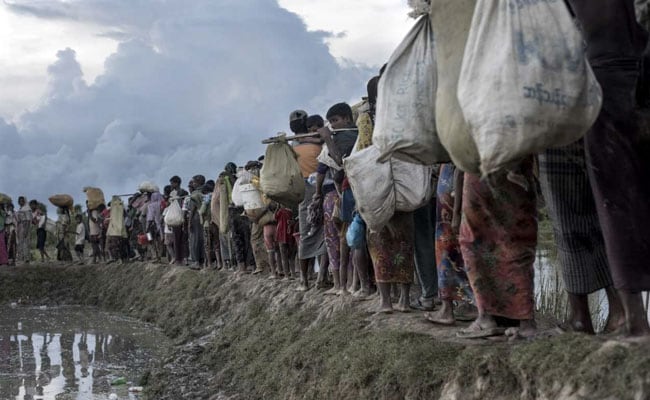KEY POINTS
- Illegal Bangladeshi immigration has significantly altered the religious and population dynamics in states like West Bengal and Delhi.
- Many infiltrators are linked to terrorism, human trafficking, hawala networks, and radicalization, endangering national security.
- Successive governments, especially in Bengal, have facilitated illegal immigration for vote-bank politics, ignoring the long-term consequences.
Illegal Bangladeshi immigration into India is no longer just a border issue it has become a full-blown national crisis with irreversible consequences on India’s social fabric, political stability, and internal security. Over the decades, lakhs of undocumented migrants from Bangladesh have entered India, changing the religious and demographic landscape of several states, most notably West Bengal and Assam. But now, this silent demographic transformation is spreading to other states, including Uttar Pradesh, Gujarat, and Delhi.
This influx is not just about economic migration. It is now increasingly linked to terror activities, organized crime, radicalization, and political appeasement. From forging fake documents to manipulating electoral rolls and indulging in heinous crimes, the illegal Bangladeshi immigrant network in India is thriving—and thriving under political patronage.
The Numbers That No One Wants to Talk About
As per a 2016 government estimate, India hosts over 20 million illegal immigrants, many of them from Bangladesh. This number is likely much higher today. Despite border fencing and surveillance, illegal entry remains rampant through porous stretches, especially in West Bengal and the Northeast.
A recent affidavit by the Central Government to the Supreme Court stated that the exact number of illegal immigrants is now unknown, pointing to systemic lapses and deliberate political negligence.
Illegal migrants often enter through border areas like Malda, Murshidabad, North and South 24 Parganas, and then move on to cities across India. After entry, they pay Rs 2,000 to Rs 10,000 to obtain fake Aadhaar cards, allowing them to access welfare schemes and voting rights. Middlemen charge up to Rs 50,000 for smuggling them into India.
Case After Case: How Crime and Terror Are Taking Root
Illegal immigrants are not just here for jobs. Many are involved in crimes ranging from human trafficking to terrorism, and recent cases underline this alarming trend:
NIA Court Convicts Bangladeshi Terrorist (Nov 2024)
In a major breakthrough, the NIA Court in West Bengal sentenced Rabiul Islam, a Bangladeshi national and operative of Jamaat-ul-Mujahideen Bangladesh (JMB), to five years in prison. Rabiul had infiltrated India to recruit Indian Muslims for terror activities and was operating under an anti-India agenda. He actively incited communal sentiments and plotted attacks on Indian soil.
Human Trafficking Racket Busted in Uttar Pradesh (Oct 2023)
UP ATS arrested three Bangladeshi nationals—Adil Mohammad Ashrafi, Sheikh Najibul Haque, and Abu Huraira—for living with fake identities and links to an international human trafficking syndicate. Investigations revealed foreign funding to the tune of ₹20 crore, with ₹1.5 crore already channeled into trafficking operations.
Terror Training and Radicalization in Gujarat (May 2023)
Four Bangladeshi nationals arrested in Ahmedabad were found to be trained in radicalization techniques in Bangladesh before illegally entering India. They belonged to a banned terror outfit and were sent with a specific mission to radicalize Indian youth.
Illegal Hawala Networks and Pakistan Links (Dec 2022)
In Kanpur, Bangladeshi national Rizwan Mohammad was caught running a hawala network with ties to Pakistan. He used a Bangladeshi passport to travel for illegal transactions and admitted to cross-border financial operations threatening India’s economic security.
Delhi, West Bengal, and Beyond: A Demographic Overhaul
A Jawaharlal Nehru University (JNU) report has laid bare how illegal migration has altered the religious composition of Delhi, pointing to a visible increase in the Muslim population due to Bangladeshi immigrants. This has changed the socio-political dynamics of the capital city, with fake documents enabling voting rights and welfare access for illegal migrants.
In West Bengal, the Muslim population grew from 19.84% in 1951 to 27.01% in 2011. While this rise is often brushed off as organic, population spikes in border-adjacent districts like Murshidabad and North 24 Parganas strongly indicate migration as a contributing factor.
The Politics of Appeasement: Aiding and Abetting Infiltration
For decades, political parties in West Bengal have not only ignored but actively facilitated illegal immigration to cultivate vote banks. From the Congress to the Left Front and now the Trinamool Congress under Mamata Banerjee, successive governments have engaged in appeasement politics.
Illegal immigrants have been settled as sharecroppers, given voter ID cards, and even found employment in public welfare schemes. In Burdwan, a group of illegal migrants were caught preparing over 1,000 bombs, and yet, there was no political accountability.
Home Minister Amit Shah has repeatedly warned that peace in Bengal cannot be restored until illegal immigration is stopped. However, state authorities have turned a blind eye, even as Bengal becomes a hub for fake currency smuggling, narcotics, and cattle smuggling.
A National Security Emergency
Security agencies have flagged Bangladeshi infiltration as one of the biggest internal security threats. Infiltrators use West Bengal as a launchpad to spread across the country, settling in places like Delhi, Mumbai, and Hyderabad.
Illegal migrants have been involved in fake currency distribution from Malda, drug trafficking and prostitution rings, land grabbing and forced displacement of Hindus and radicalization and recruitment for jihadist groups. The result? Rising communal tension, burdened resources, and a ticking time bomb of social unrest.
A Nation at Stake
Illegal Bangladeshi immigration into India is not just about borders—it’s about the safety, identity, and integrity of the Indian republic. The longer the government looks away, the deeper this parallel state will embed itself within the system. What India is witnessing is not merely migration, but a creeping invasion, aided by political complicity and national apathy.

















Comments